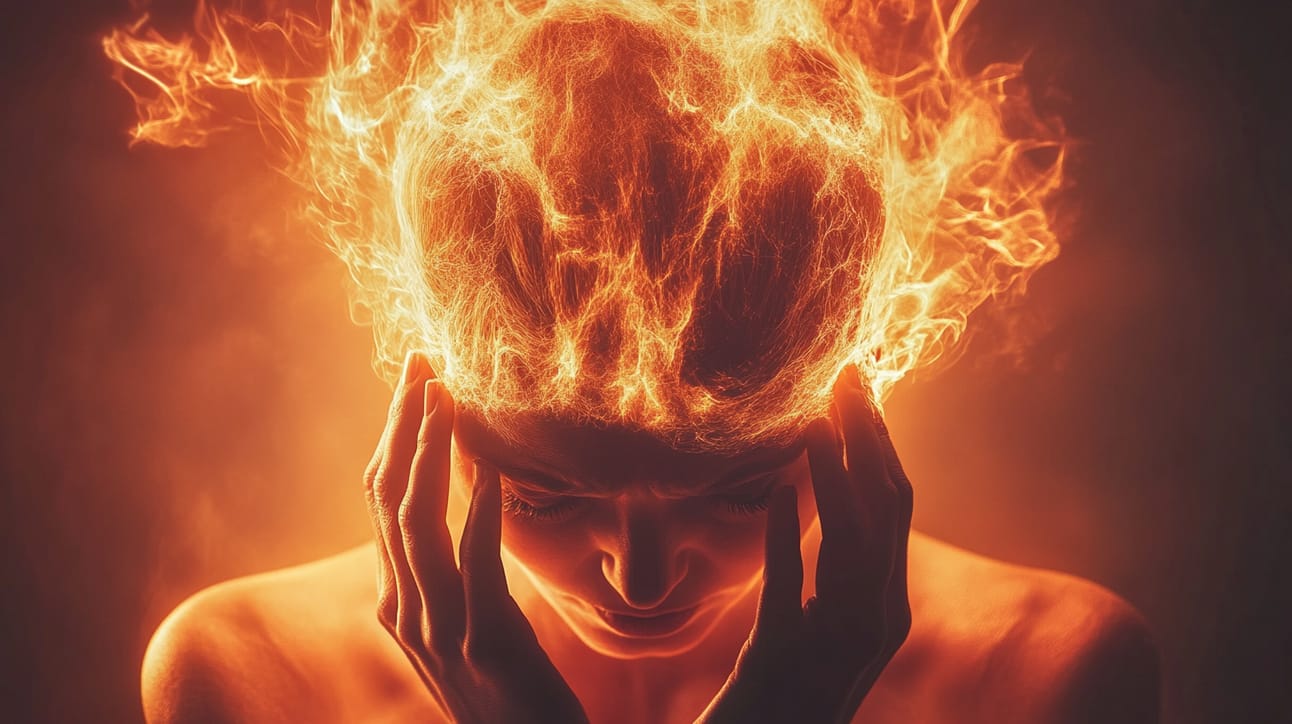- 40-something
- Posts
- How to manage hormonal headaches at period time.
How to manage hormonal headaches at period time.
Get to know the culprits behind the nagging headache that shows up during the first few days of your cycle and what you can do to minimise its debilitating impact.

Hormonal headaches are a common complaint during menstruation, and they’re often linked to the natural drop in estrogen levels that occurs during your cycle. If you’ve ever found yourself battling a headache around day 4 of your period, you’re not alone—and there are effective ways to address this discomfort.
Let’s explore why these headaches happen and what you can do to prevent or manage them.
What causes hormonal headaches during your period?
Estrogen is a key hormone that helps regulate your menstrual cycle. Around the start of your period, estrogen levels are at their lowest. For some people, this drop triggers headaches as the body adjusts to the hormonal shift. Other contributing factors might include prostaglandins (hormone-like chemicals released during menstruation), stress, dehydration, or even nutritional deficiencies.
7 ways to minimise hormonal headaches
1. Support estrogen balance
One of the most effective ways to combat headaches caused by estrogen drops is to stabilise your hormone levels. You can do this by:
Incorporating phytoestrogen-rich foods: Include soy, flaxseeds, chickpeas, and lentils in your diet. These foods contain plant-based estrogens that may help balance your hormone levels.
Balancing blood sugar: Eat meals that combine protein, healthy fats, and complex carbohydrates to prevent blood sugar spikes and crashes, which can worsen headaches.
2. Take magnesium
Magnesium is a natural muscle relaxant and helps regulate hormone fluctuations. Studies suggest it can reduce both the frequency and severity of hormonal headaches. You can find magnesium in foods like spinach, almonds, and dark chocolate, or take a supplement (consult your doctor first).
3. Boost vitamin B2 (riboflavin)
Riboflavin has been shown to reduce migraine frequency and might help with hormonal headaches. Foods rich in riboflavin include eggs, almonds, and fortified cereals. Supplements are also an option with guidance from a healthcare provider.
4. Stay hydrated
Dehydration can worsen hormonal headaches, especially during your period. Make sure to drink plenty of water, and consider electrolyte-rich drinks if you’re feeling fatigued or lightheaded.
5. Consider preventive hormonal therapies
If your hormonal headaches are severe and disruptive, you might benefit from medical treatments like:
Low-dose estrogen: Estrogen patches, gels, or pills can provide a steady level of estrogen during the days when your hormone levels drop.
Combined oral contraceptives: These can stabilise estrogen levels throughout your cycle and reduce hormonal fluctuations.
6. Manage stress
Stress can amplify hormonal headaches. Incorporate stress-reduction techniques like yoga, meditation, or deep breathing exercises to keep your body and mind relaxed.
7. Track your symptoms
Keeping a headache diary can help you identify triggers and predict when headaches are likely to occur. Apps like Clue or Flo can help track your menstrual cycle and associated symptoms, making it easier to time interventions effectively.
When to seek medical advice
If your headaches are frequent, severe, or resistant to self-care measures, it’s a good idea to consult a healthcare provider. They may recommend additional tests to rule out underlying issues or suggest treatments like migraine-specific medications or tailored hormonal therapies.
My final thoughts: Hormonal headaches don’t have to ruin your cycle. By supporting your body through dietary changes, hydration, stress management, and possibly medical intervention, you can significantly reduce the frequency and severity of these headaches. Start by tracking your symptoms and experimenting with the tips above to find what works best for you
Being female isn’t easy, but it sure is fun :)
Umayya xxx